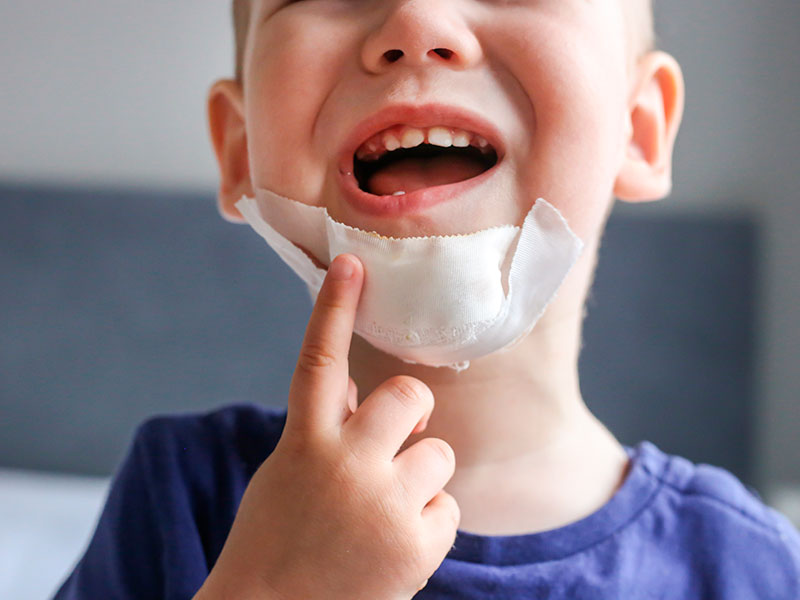Accidents happen, and sometimes children can experience trauma to their teeth that results in a knocked-out tooth. This can be a scary experience for both the child and the parent, but it’s important to know what steps to take in order to ensure the best possible outcome for the tooth and your child’s oral health. In this blog post, we’ll guide you step by step on what to do if your child’s permanent tooth is knocked out.
Step 1: Stay calm and act quickly
If your child’s permanent tooth is knocked out, it’s important to stay calm and act quickly. Time is of the essence when it comes to saving a knocked-out tooth. The first hour after the tooth has been knocked out is known as the “golden hour,” during which the tooth has the best chance of being saved and successfully re-implanted.
Step 2: Handle the tooth with care
When handling the knocked-out tooth, it’s important to be gentle and avoid touching the root of the tooth. Pick the tooth up by the crown (the top part of the tooth that is visible when it’s in the mouth) and avoid touching the root or any attached tissue.
Step 3: Rinse the tooth with milk or saline solution
If possible, rinse the tooth with milk or a saline solution. This can help to remove any debris or dirt from the tooth and keep it moist, which is important for successful re-implantation.
Step 4: See a dentist as soon as possible
It’s important to see a dentist as soon as possible. The dentist can assess the tooth and ensure that it is properly repositioned and stabilized. They may also prescribe antibiotics to prevent infection and recommend a follow-up visit to monitor the tooth’s progress.
Risks of delaying treatment for a knocked-out tooth
Not seeking a dentist immediately after a tooth has been knocked out can lead to several dangers and potential complications. Firstly, the longer the tooth is out of its socket, the less chance there is of saving it. The root of the tooth begins to die within 15 minutes of being knocked out, and after an hour, the chances of saving the tooth decrease significantly.
Additionally, not seeking prompt dental care can lead to infection, which can spread to other parts of the body and cause serious health problems. The mouth is home to many bacteria, and an exposed tooth root can become a breeding ground for harmful microorganisms.
Delaying treatment can also lead to issues with the surrounding teeth and gums. If a tooth is missing, nearby teeth can shift out of place, causing problems with alignment and bite. This can lead to further dental issues down the line, including jaw pain and difficulty chewing.
In some cases, a knocked-out tooth can also cause damage to the nerves and blood vessels in the surrounding area. This can lead to long-term complications, including chronic pain and numbness.
It’s crucial to seek immediate dental care after a permanent tooth has been knocked out to increase the chances of saving the tooth and preventing further damage and complications.
What will the dentist do?
When you arrive at the dentist’s office, they will examine the tooth and the surrounding area to determine the best course of action. In some cases, the tooth may be able to be reimplanted, which involves placing the tooth back into the socket and stabilizing it with a splint for several weeks. Other times, the tooth may need to be replaced with a dental implant or bridge.
In need of an emergency appointment?
At Upbeat Pediatric Dentistry, we understand that dental emergencies can be stressful for parents and children alike. That’s why we offer emergency dentistry services to help you and your child through any dental trauma or emergency. If your child’s permanent tooth has been knocked out, don’t hesitate to call our office and seek professional support. We’re here to help your child maintain a healthy, happy smile.



